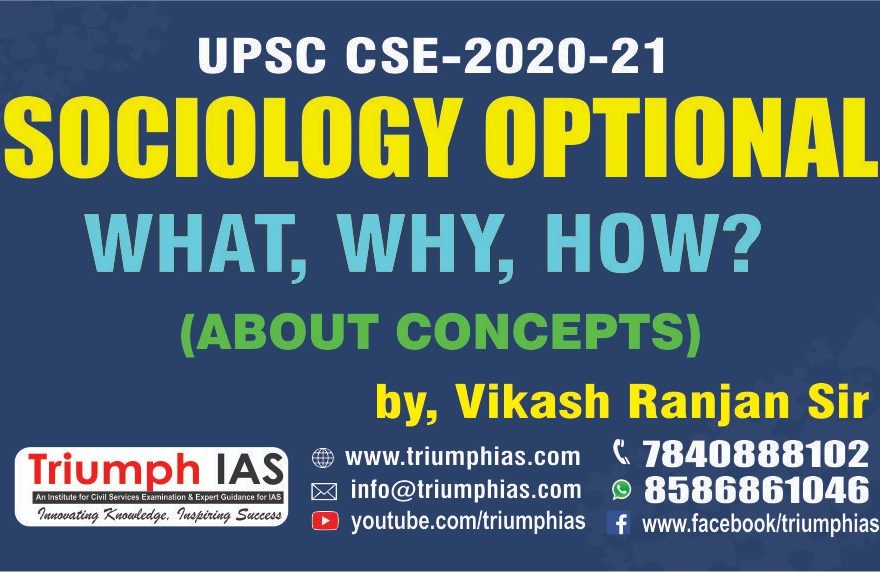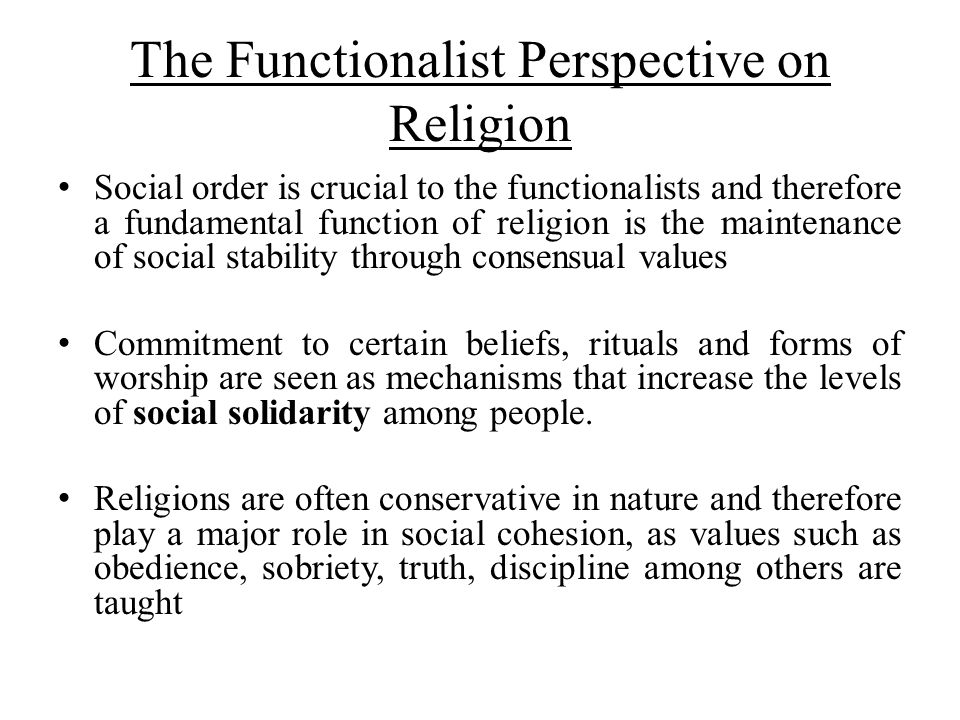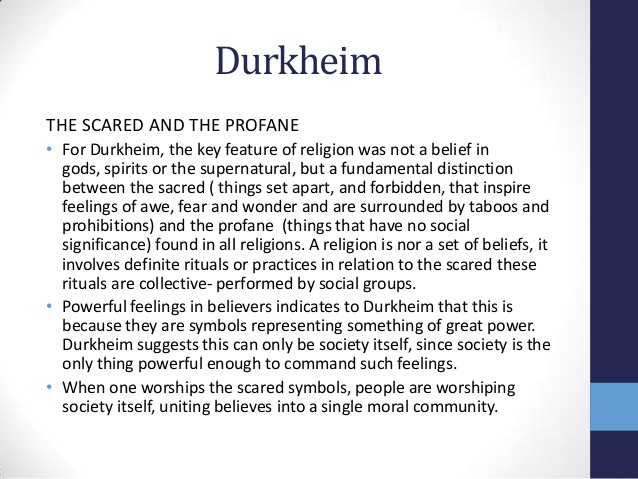Relevance: Sociology
In contrast to Marx, Emile Durkheim spent a good part of his intellectual career studying religion. Concentrating particularly on religion in small-scale, traditional societies, Durkheim’s work, “the Elementary Forms of the Religious Life”, is the one of the most influential studies in the sociology of religion. Durkheim does not connect religion primarily with social inequalities or power, but relates it to the overall nature of the institutions of a society. He bases his work on a study of totemism as practiced by Australian Aboriginal societies.
- A totem was originally an animal or plant taken as having particular symbolic significance for a group. It is a sacred object, regarded with veneration and surrounded by various ritual activities. Durkheim defines religion in terms of a distinction between the sacred and the profane.
Why is the totem sacred?
According to Durkheim, it is because it is the symbol of the group itself; it stands for the values central to the group or community. The reverence which people feel for the totem actually derives from the respect they hold for central social values. In religion, the object of worship is actually society itself.
- Durkheim strongly emphasized that religions are never just a matter of belief. All religion involves regular ceremonial and ritual activities in which a group of believers meets together. In collective ceremonials A sense of group solidarity is affirmed and heightened.
- Ceremony and ritual, in Durkheim’s view, are essential to binding the members of groups not only in regular situations of worship, but also in the various life crises when major social transitions are experienced – for example, birth, marriage and death. In virtually all societies, ritual and ceremonial procedures are observed on such occasions.
- In small traditional cultures, Durkheim argued, almost all aspects of life are permeated by religion.
How does Religion Impacts Modern Societies?
- With the development of modern societies, Durkheim believed, the influence of religion wanes. Scientific thinking increasingly replaces religious explanation, and ceremonial and ritual activities come to occupy only a small part of individuals’ lives. Durkheim agrees with Marx that traditional religion – that is, religion involving divine force or gods – is on the verge of disappearing.
- Radcliffe-Brown argues that; Religious ceremonies, for example in the form of communal dancing, promoted unity and harmony and functioned to enhance social solidarity and the survival of the society.
What are the challenges that Functionalists theories face?
- Functionalist theories of religion face a problem in the apparent decline in religious belief and participation. What is viewed as secularization in other theories is seen as simply religious change in functionalist terms. Functionalist theorists argue that religion takes different forms in apparently secular societies: it is more individualized, less tied to religious institutions. The character of modern industrial capitalist society, particularly its rampant individualism, is thus seen to be expressed in the differentiated character of religion in a society like the USA. Although seemingly having little basis for integration, the celebration of individualism is itself an integrating feature of such diverse religious forms. Moreover, new and distinctive forms of religion may perform latent functions for the system by deflecting adherents from critical appraisal of their society and its distribution of rewards.
- In anti-religious societies such as some communist States this argument cannot hold, but here it is claimed that functional alternatives to traditional religion operate. Other systems of belief such as communism itself fulfill the same role as religion elsewhere. National ceremonial, ritual celebration of communist victories, heroes, etc., meets the same need for collective rites, which reaffirm common sentiments and promote enhanced commitment to common goals.
- Finally, even in highly secularized Western societies civil religion exists. This consists in abstract beliefs and rituals, which relate society to ultimate things and provide a rationale for national history, a transcendental basis for national goals and purposes.
- Robert King Merton, a twentieth century functionalist, introduced the concept of dysfunction. Talking about religion, for instance, he pointed out the dysfunctional features of religion in a multi-religious society. In such a society religion, instead of bringing about solidarity, could become the cause of disorganization and disunity.
- Apart from Merton, many other social thinkers have highlighted the dysfunctions of religion. KARL Marx regarded religion as a source of false consciousness among the proletariat, which prevents the ‘class for itself’ from developing. It prevents them from developing their real powers and potentialities.
For more such notes, Articles, News & Views Join our Telegram Channel.
Click the link below to see the details about the UPSC –Civils courses offered by Triumph IAS. https://triumphias.com/pages-all-courses.php



